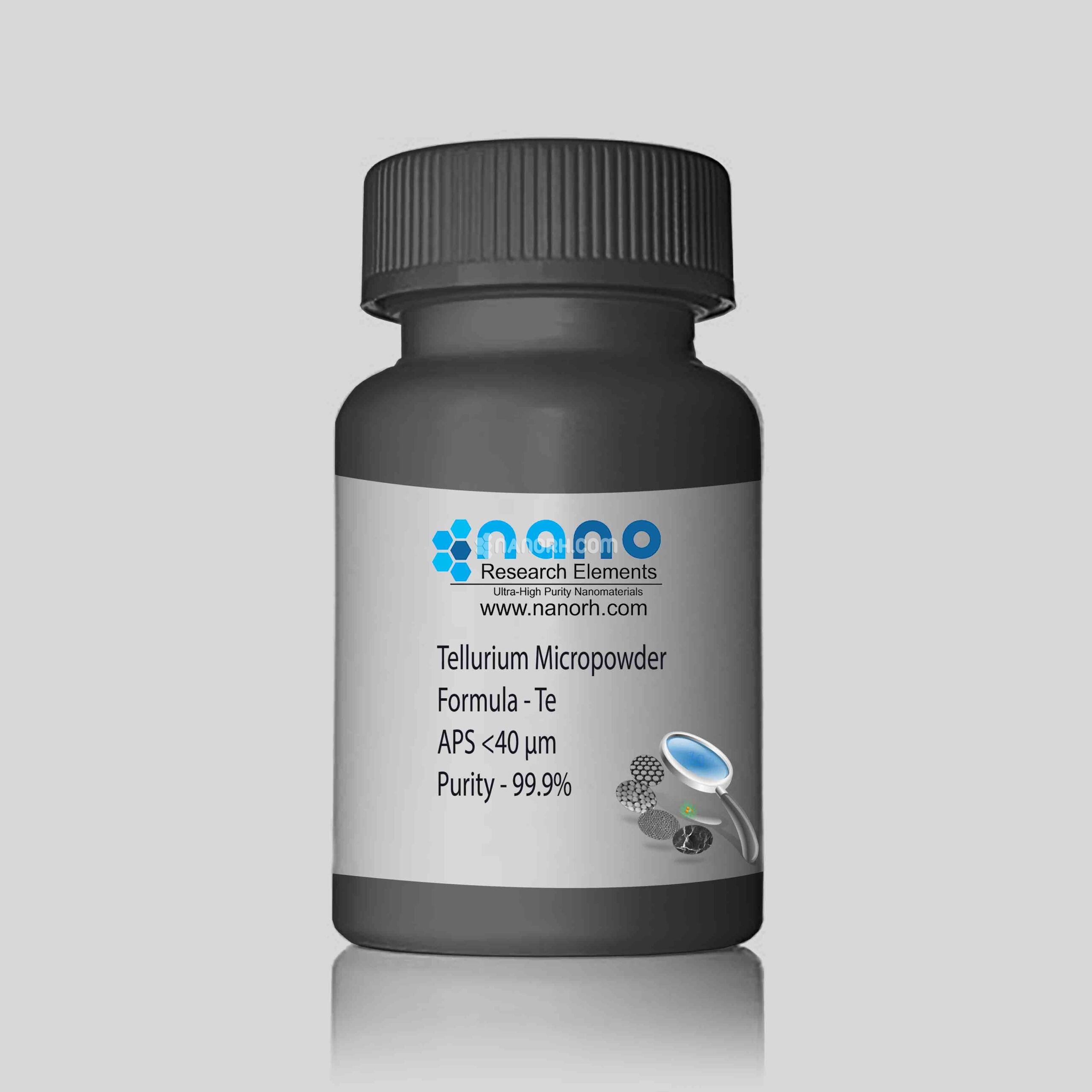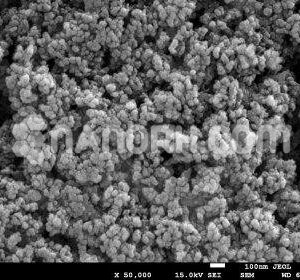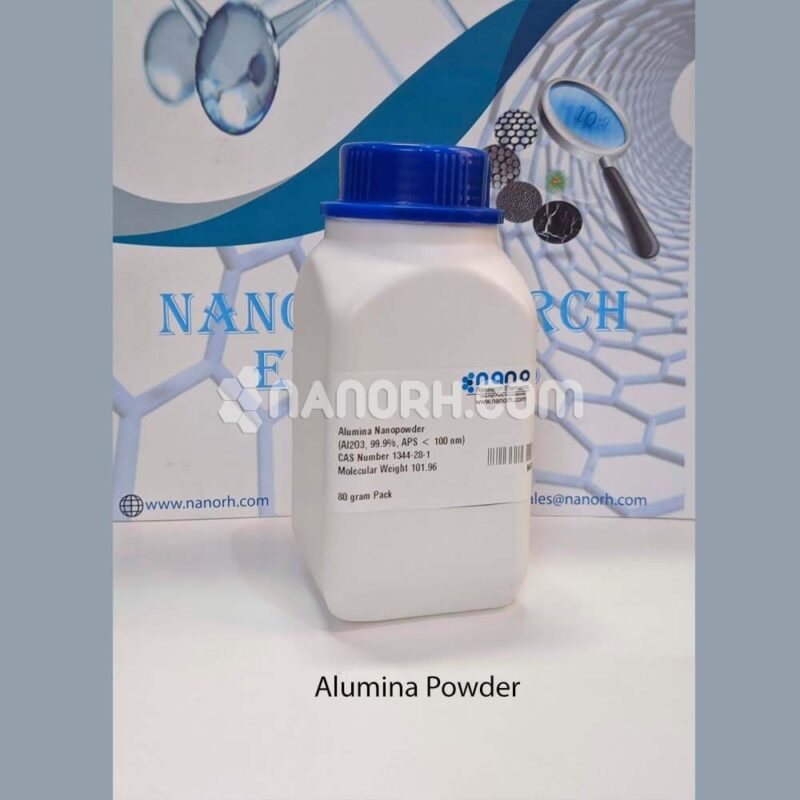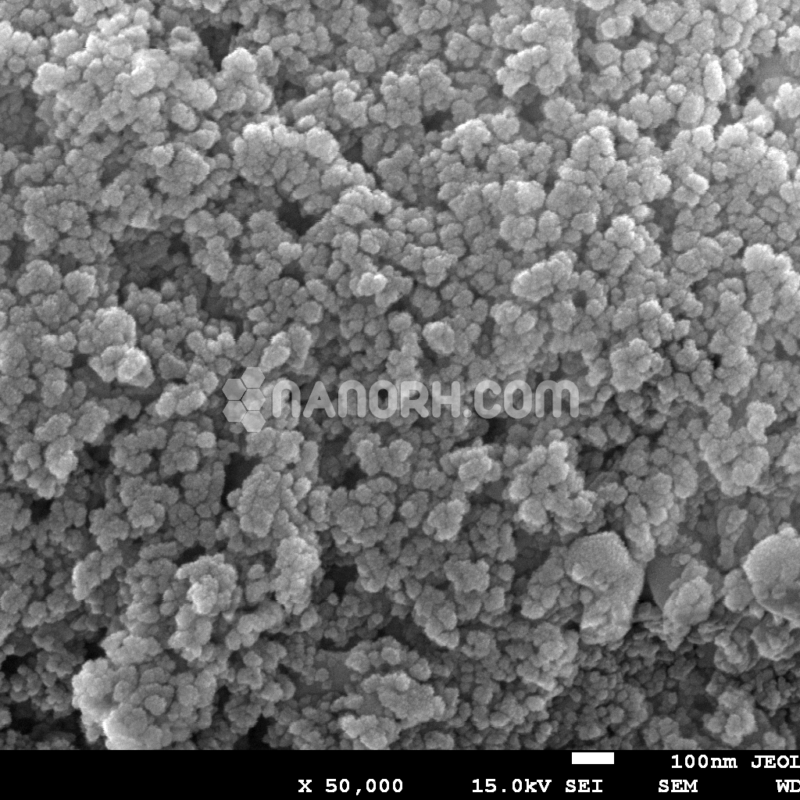| Tellurium Micropowder | |
| Product No | NRE-8050 |
| CAS No. | 13494-80-9 |
| Formula | Te |
| Molecular Weight | 127.60 g/mol |
| APS | <40 um (can be customized) |
| Purity | 99.9% |
| Color | Silvery bluish-gray |
| Resistivity | 5.8-33 μΩ-cm |
| Melting Point | 449.5 °C |
| Boiling Point | 988 °C |
Tellurium Micropower
Tellurium is a brittle, mildly toxic, silver-white metalloid. It is primarily used in alloys, in the production of electrical and electronic materials, and in the production of certain types of solar panels. One of the most common forms of tellurium used in various applications is tellurium powder. Some of its applications include:
Thermoelectric Applications: Tellurium is used in the production of thermoelectric materials. These materials can convert waste heat into electricity, making them valuable in applications where energy efficiency is crucial, such as in automotive and industrial settings.
Alloys: Tellurium is added to various types of alloys to improve their machinability and mechanical properties. It is commonly used in the production of steel and copper alloys. Tellurium can enhance the strength, ductility, and machinability of these alloys, making them suitable for a wide range of applications.
Solar Panels: Tellurium is an essential component in certain types of solar panels, such as cadmium telluride (CdTe) solar cells. CdTe solar cells are known for their cost-effectiveness and high energy conversion efficiency, making them a popular choice in the solar energy industry. Tellurium plays a crucial role in capturing sunlight and converting it into electricity in these panels.
Optoelectronic Devices: Tellurium is used in the production of various optoelectronic devices, such as infrared detectors and semiconductors. Its unique properties make it suitable for use in devices that require high sensitivity to light, such as in thermal imaging and sensing technologies.
Catalysts: Tellurium can act as a catalyst in certain chemical reactions. It is used in the production of various types of catalysts, including those used in the manufacturing of synthetic fibers and as a promoter in the synthesis of organic compounds.
Rubber Manufacturing: Tellurium compounds are sometimes used as accelerators in the vulcanization of rubber. They can improve the elasticity, strength, and durability of rubber products, making them suitable for various industrial and commercial applications.
Machining and Cutting Tools: Tellurium can be incorporated into certain types of cutting tools and machining components to improve their performance and durability. Its addition can enhance the cutting ability and resistance to wear and tear of these tools, making them more effective for industrial machining operations.




